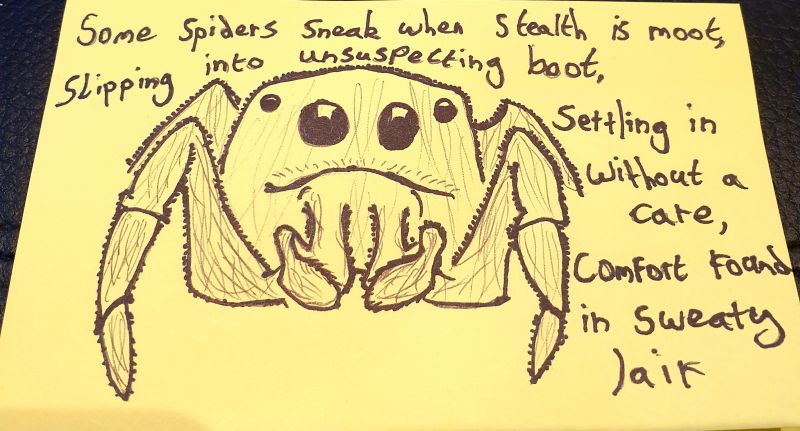(see what I did there? /finger guns)
The car gathers speed. The sirens fall away and another sound comes; a strengthening growl high above. I can picture the swollen metal bellies of the Heinkel bombers, stuffed with high explosives. With the motion of the car, I feel the ancient metal disc move on its chain beneath my shirt. Vincent’s penny; maybe it can bring me luck again.
“You can let me go. Who will ever know?”
“Why would we do that?”
“If you let Vincent do this, who will stop him doing worse in the future?”
The car stops, doors open and close. As they lead me away from the car a succession of explosions in the distance makes me flinch. A sound like a giant striding towards us, wading through houses and shops.
The hood is snatched away, revealing a large empty space, an abandoned warehouse. A table and three chairs in the centre of the room.
I know I will never leave this place.
famous last words
Anyway, in summary:
What’s it about?
Sebastian is a boy plucked from a life of poverty and abuse by Vincent, a mysterious and powerful stranger, and is groomed for the sort of greatness that powerful men seek to pass on to their proteges. (Greatness in this context comes in such exciting flavours as ‘murder with impunity,’ ‘body-snatching,’ and ‘immortality.’) Over the centuries, Sebastian reaps the rewards of being within Vincent’s inner circle, but cannot escape his own conscience. A confrontation as well as a reckoning is inevitable.
What’s so good about it?
You know what “they” say about bad pennies, but what is Chris Barnham saying about them? Possibly that there’s more than one, and whether or not that penny is ‘bad’ or or ‘good’ or bound to turn up again is entirely up to the reader. Sebastian is the lens through which we experience both the horror of a child’s abuse by his father, his serendipitous rescue by a stranger, and his gradual transformation into a man with more in common with his monstrous mentor than he is prepared to admit to himself.
I enjoy any story that makes me struggle to find an appropriate genre label for it. This one spans genres, being equal parts historical fiction and fantasy (hence its appearance on PodCastle), but I’d stretch it further and categorize it as a piece of horror fiction, too. The horror is slow to approach, and subtly written, but it will slam into you like a freight train if you pick the story up for a second time and re-read it from the beginning.
Where can I find it?
You can find the full text of “Vincent’s Penny” over here at PodCastle, and I would strongly recommend reading along with the story as you listen to Matt Dovey’s A+ narration. It’s well worth your time.
Happy listening!



